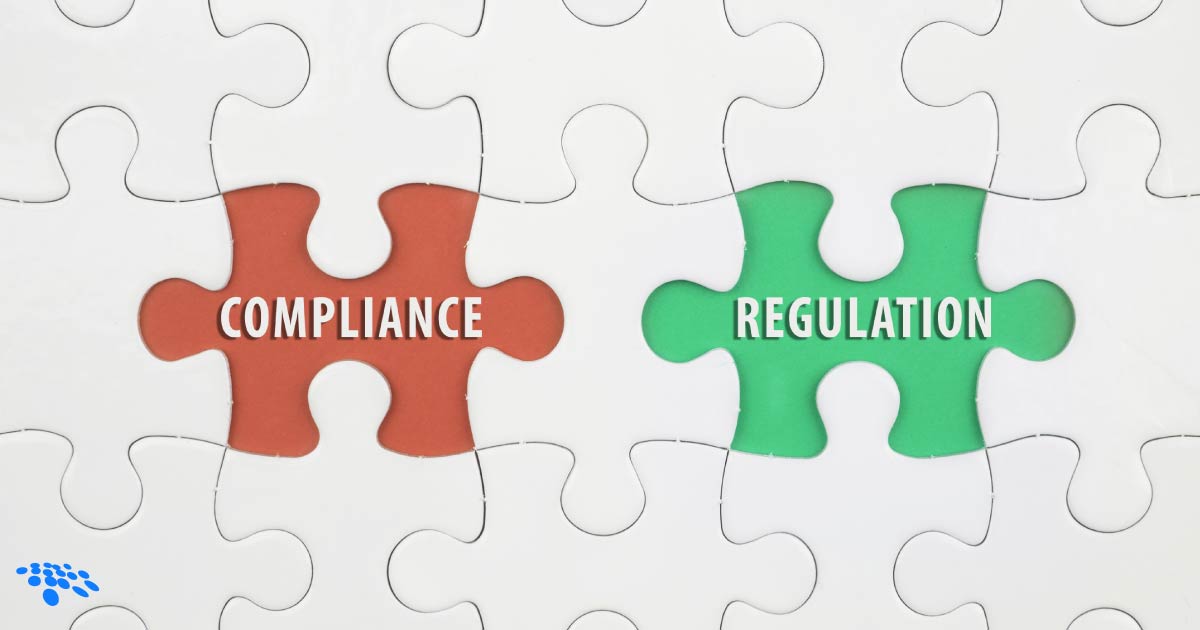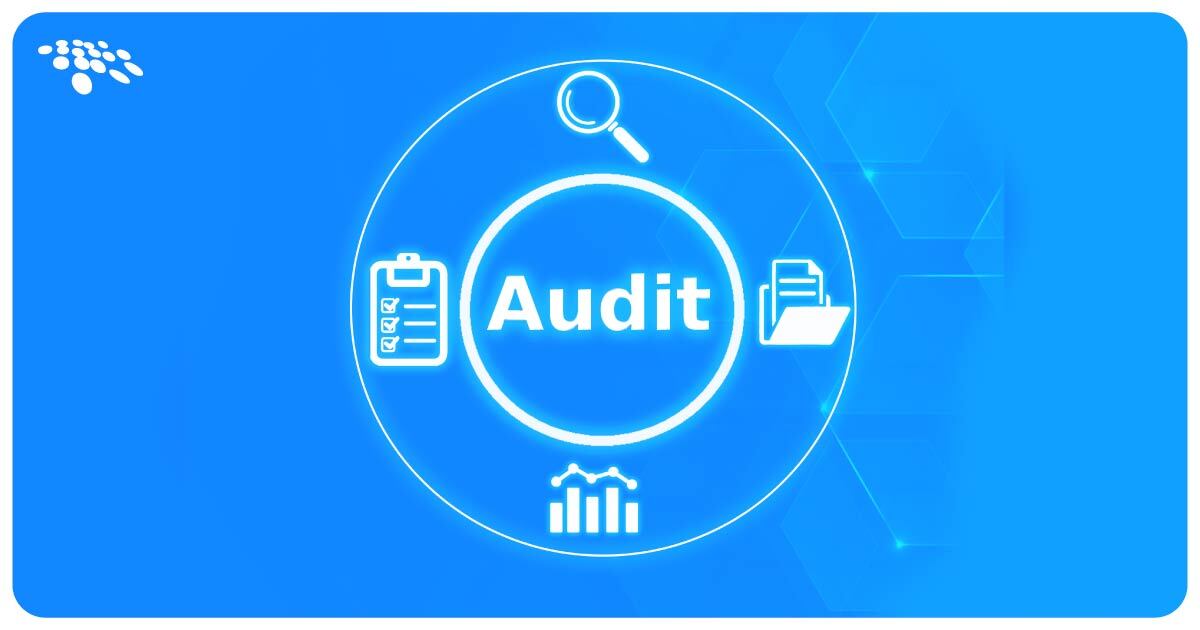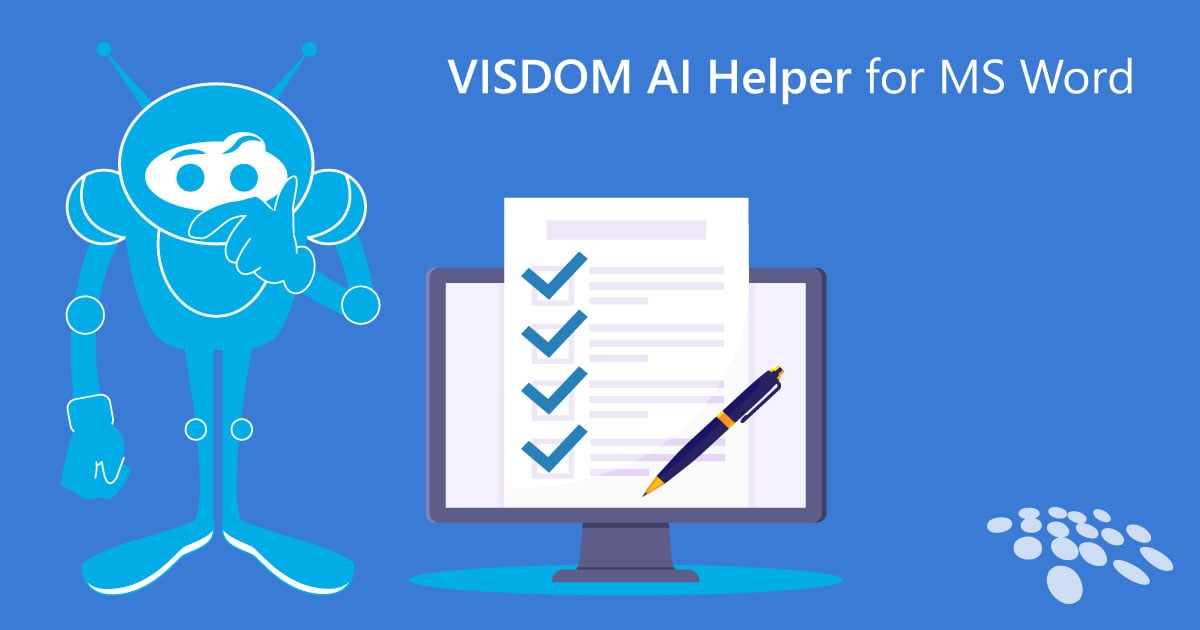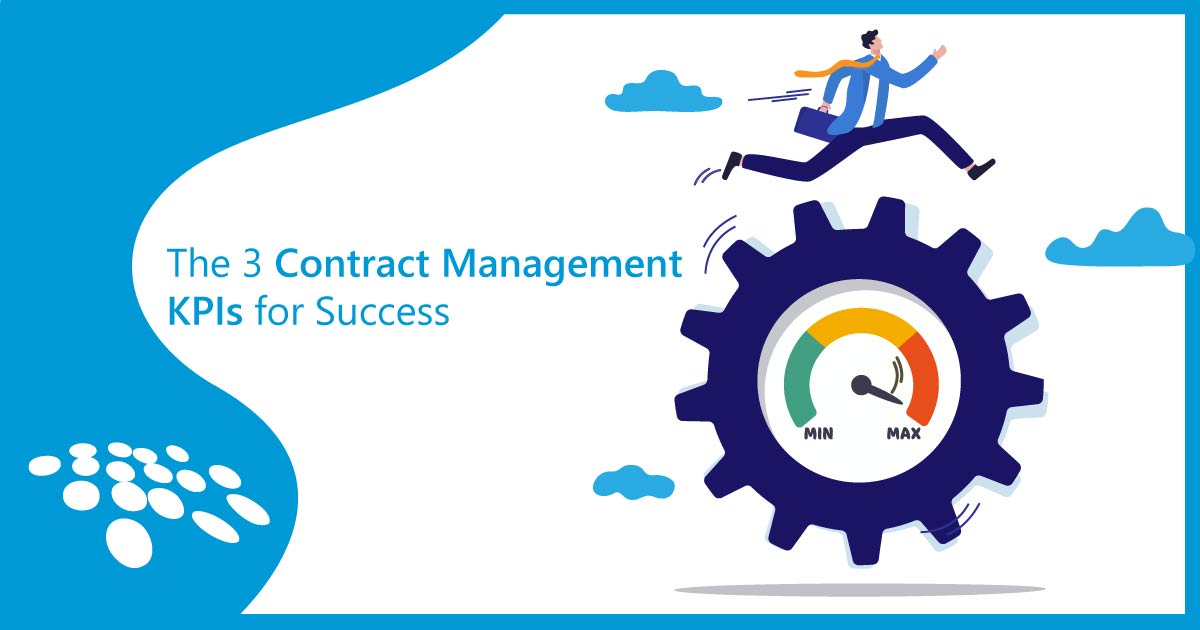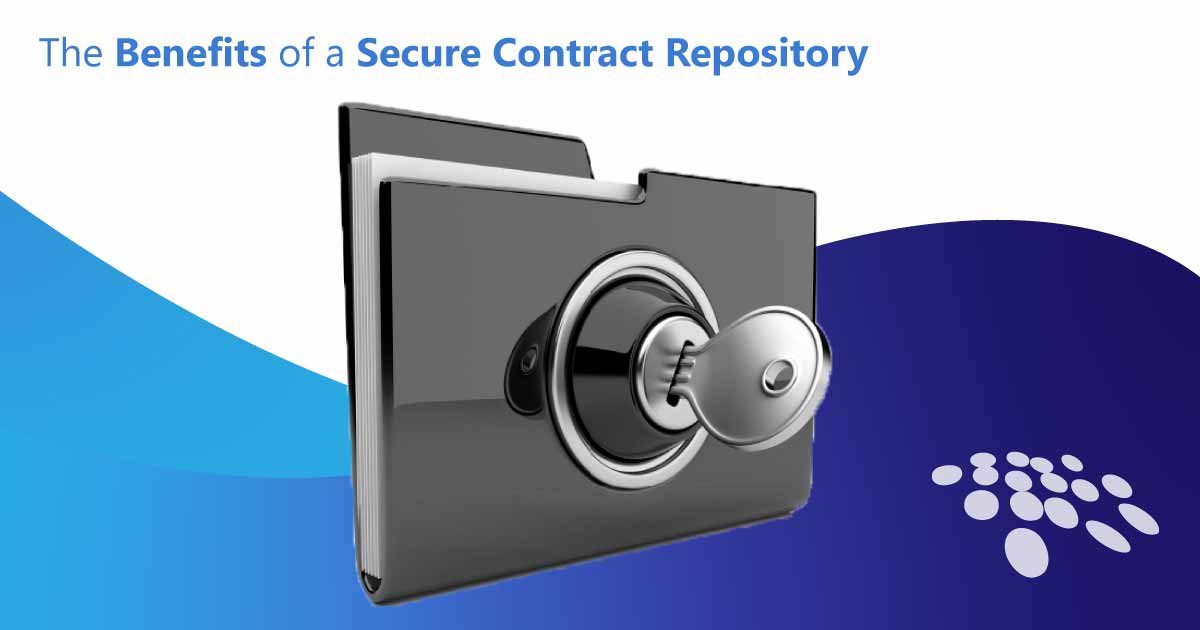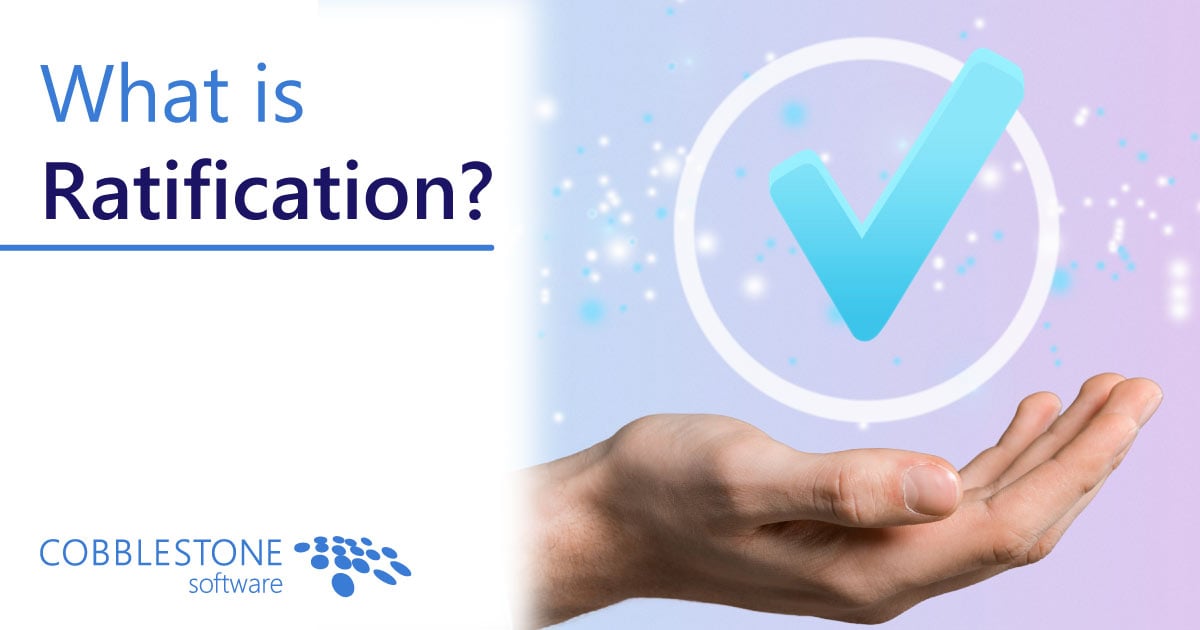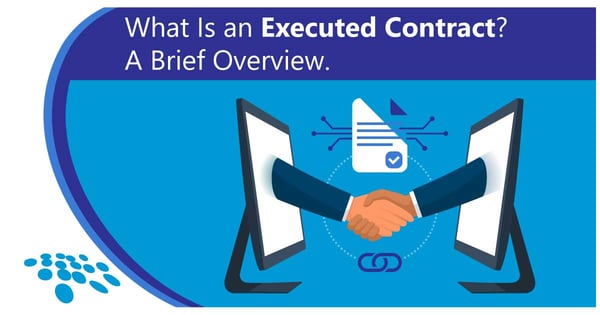
Contract execution is a critical stage in contract lifecycle management. By this point, the terms of the contract have been negotiated. Parties involved have ensured that everything is understood and all necessary resources have approved the written agreement. From there, contract parties sign the contract to propel its execution.
Given the importance of this stage of contract management, you should know what an executed contract is and its meaning. As such, here is a brief overview of contract execution.
What Is Contract Execution?
Contract execution is when a contract is fully signed. It is now a legally binding, executed contract. A business relationship is created – and parties to the executed contract agree to fulfill legal obligations. Next, contractual obligations are performed, compliance is upheld, and parties have the opportunity for contract renewals.
“Fully Executed Contract” vs. “Executory Contract”
Contracting professionals make a distinction between “fully executed contracts” and “executory contracts." Understanding this important difference provides a better grasp of effective contract management.
Contract management professionals say that a contract is “executory” when it has been simply signed by all parties and finalized. Meanwhile, a contract that has been “fully executed” can be understood as one whose contract obligations have been entirely fulfilled.
A better sense of this difference and the executory contract meaning can come from examining a typical lease contract.
A tenant and a landlord each sign a lease agreement detailing their respective responsibilities. When signed, this contract is in its executory stage. Once the obligations of each party are fulfilled by the end of the lease period (unless there is a breach of contract), the contract is fully executed.
“Execution Date” vs. “Effective Date”
Again, though they sound similar, the date of contract execution and the date a contract is effective should not be confused.
A contract’s execution date is when a contract is signed – and thus confirmed – by contract parties. A contract’s effective date, meanwhile, is when terms go into effect.
As an example of this difference, let’s take a look at a construction contract.
ABC Inc. is a real estate client who wants construction performed by XYZ General Contractor.
Contract terms – such as the scope of work, subcontracting specifications, and payments – are agreed upon with signatures on the execution date.
However, construction may not start right away; scheduling and logistics may come before any contract obligations are fulfilled. As such – XYZ General Contractor begins post-execution construction obligations on the effective date.
Another simple example is a sales contract.
ABC Buyer has paid for goods from XYZ seller, per the terms of a contract. The contract was signed on the execution date – while deliveries and shipments of the goods commence on the effective date.
How Do I Manage Contract Execution?
Virtually all types of contracts are executed with signatures. Organizations looking to streamline the enactment of contract execution should leverage electronic signatures.
E-signatures streamline the approval process so that terms and conditions can become executed copy and fruitful business relationships can begin. The reason so many organizations are switching to advanced eSignatures is that they help:
- save money wasted on paper, ink printers, travel expenses, mailing costs, and other resources to get contracts signed and executed.
- save time that is wasted with sending, tracking, storing, and following up on contracts sent out for signature and contract execution.
- increase security with audit trails and a legally binding and secure process.
- improve flexibility with the ability to sign in the office or on the go.
In addition to e-signature functionality, organizations can leverage contract management software with tools for after contract execution, such as:
- automated reminders and calendar alerts for obligations and renewals.
- audit trails to track contract changes.
- contract analytics that provide insight into contractual relationships, value, and risk.
- contract AI for risk management and compliance tracking.
Book a free demo of CobbleStone Contract Insight® to see these contract software and signature tools and more for better managing in-process and executed agreements. Do you want to dive right in? Enjoy a free trial!
This blog was originally published in November 2022 and updated in November 2024.













